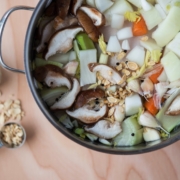Probiotics vs. Prebiotics
[vc_row][vc_column][vc_column_text]
A diverse gut microbiome is essential for all aspects of health including digestion, immune modulation, metabolic activity, and gene expression. Thanks to the vast amount of research done by foundations such as the Human Microbiome Project, a deeper understanding of the symbiotic relationship between human health and the microbial world has been gained. Additionally, new insights and ground has been broken into progressive functional therapies and treatments for conditions not limited to digestion alone.
This understanding is why Probiotic usage has become widely accepted in our society and recognition of their health benefits has become common knowledge. Probiotics have gotten a ton of positive press and for good reason. Probiotics are live beneficial bacteria and microorganisms that form part of our natural intestinal flora. They aid digestion and absorption of food, protect us from certain invasive pathogens, and can even help synthesize B and K Vitamins. So with all the current research validating the health benefits of Probiotics, it would make sense that taking a supplement daily should fix all of our digestive woes, right? Not exactly. Probiotics absolutely have health benefits and certainly have their place when used correctly. However, most patients (and doctors) don’t understand when, how, and why to use them. Unfortunately, restoring gut health is a lot more complicated than popping a Probiotic capsule every day, especially if there is dysbiosis, increased intestinal permeability, or infection.
Think of Probiotics as a traveling missionary group of doctors passing through an impoverished village every once in a while, bringing with them supplies, medicine, and support. The volunteers have no intention of establishing permanent residence in the village but instead are just doing their job for a few weeks, providing temporary benefit to the residents in the community. But once their time is up, it’s up and there is no sustainable resources left behind. In order to convince some of these doctors to stay, they need to be enticed, drawn in, and see the village as a desirable place to live full time. They would only consider posting up permanently if there was unlimited food, non-hostile neighbors, plenty of water, and a warm friendly environment. But unless all of these needs are met, the traveling missionaries will keep on moving. Obviously I am just speaking metaphorically, but you get the point.
To translate, Probiotics alone are not enough to promote any lasting changes to the gastrointestinal microbiota. While they do provide benefit when they are present, they are transitory in their passage through the digestive tract. After only two weeks of discontinuing supplementation they are undetected in a stool analysis. Without an adequate and stable food source, specifically a Prebiotic fiber, they will be unable to begin colonizing the large intestine and mature. Prebiotics are vastly underestimated in terms of their capabilities to beneficially influence the gastrointestinal microbiota. Prebiotics are not live bacteria. They are a type of dietary fiber (bacteria food) that are not digested or absorbed in the small intestine. This allows them to arrive in the colon intact where they are then fermented by the gut microorganisms. Prebiotics selectively stimulate the growth and metabolic activity of the healthiest strains of beneficial flora found in the large intestine.
These Prebiotic fibers are a form of soluble fiber. Not to be confused with insoluble fibers that are neither digested by us or our microbes, but help to bulk up the stools and aid in passage. When most people discuss the so-called benefits of dietary fiber, they are usually talking about insoluble fiber’s effect on stool passage and volume. What your friendly microbes need is the soluble fiber they they can digest and utilize. Known as fructo-oligosaccharides, inulin, or galacto-oligosaccharides, they can be used in their isolated form such as Prebiotic Inulin, FOS, and Slippery Elm. It is interesting to note that breast milk contains both Probiotics (bifidobacterium, mostly) and Prebiotics for the bacteria to feed on. Nature’s way of telling us that both play an important role.
Of course, Prebiotics can also be obtained naturally from the diet. Using food as medicine should always be the first priority. Prebiotics are probably already in your diet; you just didn’t realize it. Some foods high in Prebiotic fibers include:
-
- Dandelion greens
- Garlic, onions, leeks (and any vegetables in that family)
- Asparagus
- Bananas
- Raw Chicory Root
- Jerusalem Artichoke
Several studies have shown that Prebiotics alone can be effective in increasing fecal bifidobacteria (good flora) [1], relieving symptoms of IBS [2], increase mineral absorption [3], and even possibly reduce the risk of colon cancer [4].
Just as I discussed in the article Fish Oils: Omegas Explained in regards to quality of supplements, it is important to realize that not all Probiotics are created equal. As with any phytonutrients and supplements, choosing a reputable company with third party testing is crucial. My two favorite Probiotics that I recommend to patients are Klaire Labs “Thera-Biotic Complete” and Prescript Assist. In addition, I can not stress the importance of refrigerating your Probiotics. Anytime you see Probiotics on a store shelf and not in a fridge, just assume that the once live strains are now dead and your money has been wasted. The only exception to this rule is soil based Probiotics, such as Prescript Assist (which is one of the many reasons why I love them).
In my practice I have found that providing both Pre- and Probiotics, whether through diet or supplementation has shown more benefit than just Probiotics alone. There is never a catch all cure for everyone, however. If you have difficulty tolerating these Prebiotic foods or if symptoms flare with Pre/Probiotic supplementation then there could be other factors present such as Small Intestine Bacterial Overgrowth (SIBO). In this case, working with a functional health professional is a good idea. An in depth look at both SIBO and treating Dysbiosis will be discussed soon in this Healthy Gut Series.
A healthy gut and diverse microbiota is absolutely essential to health! Please comment below, as I am happy to answer any questions you may have. I am looking forward to developing this series on such an enormous topic!
[/vc_column_text][/vc_column][/vc_row]












What can I get instead of prescript-assist? Since it is no longer available.
Hello Ginny! Good question. Yes, it is unfortunate that Prescript Assist has changed their formula leading to many distributors dropping them. I now use (and LOVE) MegaSpore Biotic. It is a spore forming pharmaceutical grade probiotic. If you are interested, I am happy to supply some to you. You can read more about the product here https://microbiomelabs.com/products/megasporebiotic/